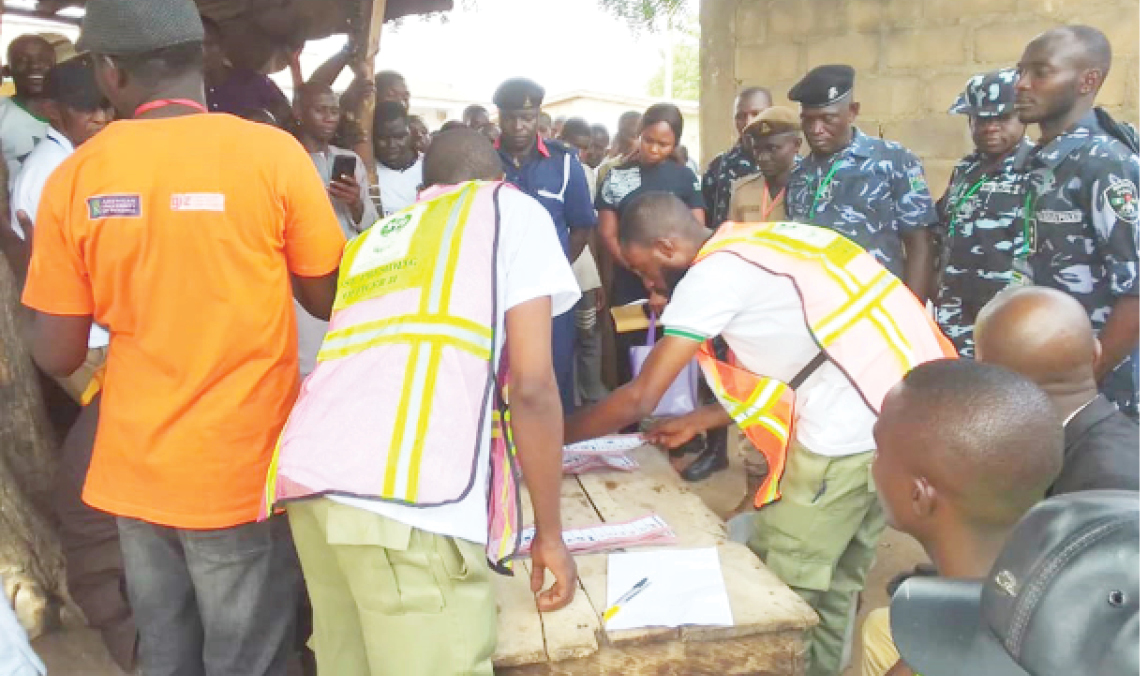No Excuses
By Oluwole Onemola Nigeria’s political landscape has seen its fair share of challenges and triumphs throughout its history. The Second Republic from 1979 to 1983 stands as a significant period, marked by a delicate balance of power and the need for collaboration. It was a time when we had 19 states, as opposed to the […]

FILE PHOTO: INEC Officials sorting votes
By Oluwole Onemola
Nigeria’s political landscape has seen its fair share of challenges and triumphs throughout its history. The Second Republic from 1979 to 1983 stands as a significant period, marked by a delicate balance of power and the need for collaboration. It was a time when we had 19 states, as opposed to the current 36, and only a handful of prominent political parties. The National Party of Nigeria (NPN), led by President Shagari, held sway at the center but not without the need to forge alliances with other parties to secure a majority in the National Assembly.
During those four eventful years, historical records show that we grappled with various obstacles, including a teacher’s strike in 1981, the Maitatsine riots, and a steep decline in oil prices. In response, the government of the day implemented certain practices to maintain focus on its priorities. Foremost among these practices was a weekly meeting of key stakeholders at the President’s residence — which was convened by the President, but chaired by the Chairman of the ruling party.
Attendees at these meetings included the Vice-President, the President of the Senate, the Speaker of the House, and Majority Leaders from both chambers. Additionally, Ministers and appointees relevant to the topics under discussion would be invited on a need-to-know basis.
The purpose of these meetings was clear: to ensure harmony between the tripartite structures that made up the federal government — the executive, the leaders of the legislative branch, and the leaders of the ruling party. Such meetings allowed for informed decision-making of the shared priorities for the week. Beyond information sharing, the meetings represented an acknowledgment that the President, despite all his powers, had to rely on the support of his party and the legislature to accomplish his goals.
Now, let us now fast forward to the present.
In 2015, supporters argued that the former President, Muhammadu Buhari, struggled to achieve his objectives due to a lack of desired leadership in the National Assembly. In 2019, it was claimed that President Buhari had secured the desired leadership, but the COVID-19 pandemic disrupted his plans. Now, in the third term of the ruling All Progressives Congress (APC), with an overwhelming majority in both chambers of the federal legislature and control over 20 out of 36 states, it is evident that the APC reigns as the dominant party in Nigerian politics.
Democratic politics hinges on majority rule. Whereas the NPN had to negotiate due to power-sharing, the APC now holds the ability to exert influence. However, it is crucial that the party ensures alignment among its key stakeholders.
As we near the end of the second month of this administration, there are no apparent signs that the ruling party’s structure, the legislative branch, and the executive will convene regularly to prioritize the promises made to Nigerians during the 2023 general elections.
Additionally, considering the weight of the responsibility of the presidency, the weekly consultations amongst his party members are only a first step. Yes, the promises of his party should be prioritized, however, a President — as the representative of the entire nation — cannot afford to be partisan. He carries a burden distinct from that of Senators, Members of the House of Representatives, and Governors. It is therefore imperative for him to broaden his consultation efforts, encompassing not only his political allies but also opposition figures and regional leaders, especially given the deep divisions that currently exist in our nation.
Therefore, while seeking the weekly input from his party members, the President should consider ongoing consultations with regional and ethnic groups and elders to truly grasp the perspectives of all segments of society. Such inclusive engagements can foster a comprehensive approach to policymaking that is sorely needed in these turbulent times.
At this time, the government at the center possesses all the necessary tools for success. It can choose to learn from its own past and the experiences of others. It wields the entire machinery of government at its disposal. Therefore, it is my hope — like the hope of millions of other Nigerians — that when we reflect on this period in the future, there will be no excuses.
Onemola, who sent this piece from Abuja, tweets at @Onemola. —
